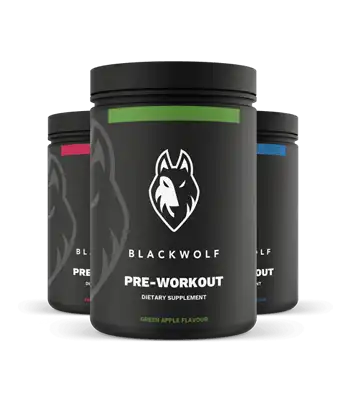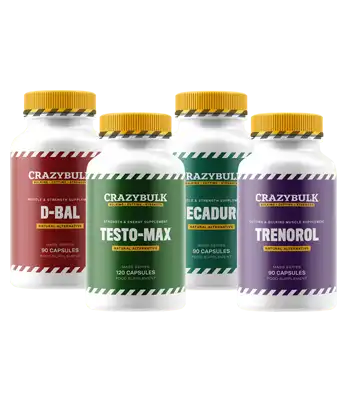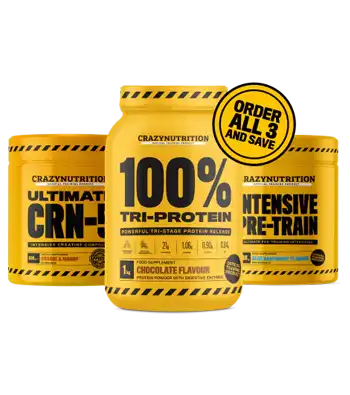Introduction
Dietary fiber refers to the parts of plant foods that our bodies can’t digest or absorb. It comes from the walls of plant cells and is classified as either soluble or insoluble.
Fiber is a type of food found in plants. It’s made of something called complex carbohydrates. In plants, fiber helps them stay strong and upright. When we eat these plants, the fiber goes through our belly without getting broken down.
Fiber plays an important role in our health. It promotes regularity and reduces the risk of conditions like heart disease, diabetes, and digestive issues. Getting adequate fiber from whole plant foods is recommended for overall wellness.
What are Dietary Fibres: their type and role in our body?
Dietary fiber refers to the parts of plant foods that cannot be broken down or absorbed in our digestive tract. It comes from the cell walls of plants and is classified as either soluble or insoluble.
Soluble fiber dissolves in water to form a gel-like texture in the digestive system. Sources include oats, peas, beans, apples, and citrus fruits.
Insoluble fiber does not dissolve in water. It helps food move through the digestive tract more quickly. Whole grains, wheat bran, and vegetables like carrots are good sources.
Soluble fiber forms a gel that adds bulk to stool and helps food move through the gut smoothly to prevent constipation. Insoluble fiber adds structure and speed to digestion.
Fiber is the nondigestible component of plant food that can help reduce risk for cardiovascular disease, diabetes, and obesity.
– Stacey Nelson, registered dietitian and clinical nutrition manager at Massachusetts General Hospital.
Who can lack Fiber in their diet?
There can be various reasons why someone might not be getting enough fiber through their diet. Situations where individuals may lack fiber are:
- Those who eat a highly processed diet low in whole foods may not get enough fiber. Processed foods are stripped of their natural fiber content.
- Busy lifestyles where people rely on convenience meals and snacks instead of home-cooked meals make it hard to meet fiber needs from diet alone.
- Some medical conditions like IBS, Crohn’s disease, or ulcerative colitis may require a low-fiber diet temporarily, putting individuals at risk of deficiency.
- The elderly who have difficulty chewing or swallowing whole foods are less able to consume high-fiber options like nuts, seeds, and raw vegetables.
Reasons for not getting enough fiber from food:
Fiber can lower blood sugar, cut cholesterol, and prevent colon cancer. But fewer than 5 percent of Americans get the recommended amount of dietary fiber each day.
– Dr. Michael Greger, physician and founder of NutritionFacts.org
Most people only consume around 15 grams of fiber daily instead of the recommended dose of 25 grams for women and 38 grams for men. This is difficult to achieve without supplements.
- While fruits, vegetables, legumes, and whole grains are fiber-rich, it’s challenging to eat enough variety and volume of these foods each day.
- People tend to select low-fiber, high-calorie options when eating out or grabbing snacks on the go due to convenience and taste preferences.
- Cooking and processing methods remove much of the fiber from foods. For example, whole wheat bread has less fiber than an equal amount of raw oats or brown rice.
So, how can we make sure we get enough fiber? For this, fiber supplements can help bridge the gap for those who struggle to meet their needs through diet alone. They provide an easy, concentrated form of both soluble and insoluble fiber types to support digestive and heart health.
Types of Fiber Supplements
Fiber supplements come in both soluble and insoluble forms to support different health needs:
Soluble vs. insoluble supplements
Soluble fiber supplements like psyllium, glucomannan, or beta-glucan are helpful for cholesterol-lowering and blood sugar control. They dissolve easily in water.
Insoluble fiber supplements like methylcellulose or calcium polycarbophil are ideal for constipation relief and regularity since they add bulk but don’t dissolve.
Natural supplement sources of fiber
- Psyllium (Plantago ovata) – Derived from the seeds of the plantago plant, it is a highly effective soluble fiber for digestive health.
- Inulin – A soluble fiber found in foods like garlic, onions, and bananas. Supplements provide prebiotic fuel for beneficial gut bacteria.
- Methylcellulose – Derived from plant cellulose, it is commonly used in supplements due to its insoluble properties and ability to add bulk and moisture to stool.
- Flax and chia seeds – Whole or milled versions of these seeds provide soluble and insoluble fiber to support digestion and heart health.
- Glucomannan – Derived from konjac root, it is a soluble fiber that forms a thick gel to induce fullness and slow nutrient absorption. As we derived in Trimtone supplement review which contains glucomannan as a primary ingredient may help for balancing sugar level.
Manufactured Fiber Supplements
Manufactured or synthetic fiber supplements are fibers that are artificially produced through industrial processing rather than extracted from natural plant sources. They can still provide many of the same health benefits as natural fibers.
Two common types of manufactured fiber supplements are:
- Polydextrose – It’s a special kind of fiber made from sugars like glucose. This fiber dissolves in water and helps the good bacteria in your gut. Plus, it has fewer calories than the fiber you find in foods naturally.
- Methylcellulose -This comes from plants and is made by changing plant stuff so our bodies can’t digest it. It’s the kind of fiber that doesn’t dissolve in water, and it helps make your stool bigger and keeps you regular.Manufactured fibers allow supplement companies to precisely control the fiber content and dosage in products. They also offer options for people who want to avoid common allergens like psyllium or wheat that may be present in natural fibers.While natural fibers from foods are generally considered healthier, manufactured versions are still a good alternative for those who need extra fiber and find it difficult to get from diet alone. Like all supplements, it is best to consult a doctor before long-term use.Fiber supplements come in powder, capsule, and chewable forms to suit different needs and preferences. Starting with a low dose and drinking extra water is advised to avoid gas and bloating.
How Fiber Supplements Work
Fiber supplements work to support digestive and overall health through several key mechanisms in the body:
Soluble fibers dissolve into a gel-like texture in the digestive tract. This helps slow the movement of food and the absorption of sugar, which moderates blood sugar and insulin levels. It also binds to cholesterol in the intestines to help remove it from the body.
Insoluble fibers add bulk and draw water into the colon. This softens stool and adds weight and pressure, which stimulates peristaltic contractions for smooth bowel movements. The bulk also speeds up the transit time of waste through the digestive system.
As fibers move through the digestive system, they act as food for beneficial gut bacteria. This promotes a healthy microbiome. When things break down in your stomach, they make short-chain fatty acids. These help your belly and immune system work well.
Fiber supplements give your body special carbohydrates that it can’t digest. These help to keep you regular, reduce cholesterol, manage your blood sugar, make you feel full, and feed the good bacteria in your stomach. To make them work best, take them with food and drink lots of water so they can help with digestion.
Benefits of Fibre Supplements
Weight Loss
High-fiber diets promote fullness due to fiber-absorbing water and increasing stomach volume. This supports weight control by reducing appetite and calories consumed. Soluble fibers like psyllium, glucomannan, and pectin are especially effective for this.
Digestion:
Insoluble fibers from supplements and foods add bulk and draw water into the colon to soften stool. This promotes regular bowel movements and prevents constipation. Soluble fibers form gels that lubricate stool smoothly passing through the digestive tract.
Heart Health:
Soluble fibers lower LDL (“bad”) cholesterol by binding it during digestion and removing it from the body. Studies show as little as 5-10 grams of soluble fiber daily from supplements like beta-glucan can lower cholesterol. This reduces the risk of heart attacks and strokes.
Diabetes:
Soluble fibers like guar gum and psyllium have been shown to improve blood sugar control when consumed as supplements or in foods. They slow glucose absorption in the gut, preventing sharp spikes in insulin and blood sugar levels after meals. Over time this benefits insulin sensitivity.
Cancer:
The fermentation of fibers by gut bacteria produces short-chain fatty acids like butyrate that protect colon cells from damage. Butyrate also reduces inflammation and supports immune function in the digestive tract to help prevent colorectal cancer development.
Gut Health:
Both soluble and insoluble fiber supplements promote the growth of beneficial bacteria like Bifidobacteria and Lactobacillus in the gut. A diverse microbiome supports immunity and protects against harmful pathogens that can cause gut infections and inflammatory bowel conditions. You must read Activated You review article to know about this gut bacteria.
Fiber is the most important nutrient for gut health. It feeds the good bacteria in your gut and helps them produce short-chain fatty acids that have anti-inflammatory and healing effects.
– Dr. Will Bulsiewicz, gastroenterologist and author of Fiber Fueled
Allergies:
Early-life fiber intake may reduce allergic sensitization by influencing the gut microbiome in a way that dampens immune system reactivity over time. Studies show a possible link between high-fiber diets and lower asthma and eczema in children.
Side effects of fiber supplements
While fiber supplements are generally safe for most people, high doses all at once can sometimes cause temporary digestive side effects as the body adjusts.
Common issues include gas, bloating, cramping, and diarrhea. This is especially true for soluble fibers like psyllium. To minimize discomfort, it’s best to gradually increase intake over 1-2 weeks and drink plenty of water with supplements.
Taking them with meals also helps reduce side effects. Most pass within a few days as the gut adapts to the increase in fiber. If your symptoms don’t go away, it’s a good idea to see a doctor for advice.
Naturally Incorporating Fiber Supplements into Your Diet.
Easily including fiber supplements in your daily meals can gently and consistently increase your essential nutrient intake.
Fiber Supplements Made Easy: Everyday Integration Tips
If your meals contain no fiber source, you can add a fiber supplement to your food.
- Stir fiber supplements like psyllium husk or flaxseed into smoothies, oatmeal, or yogurt daily for breakfast. This provides a soluble fiber boost first thing.
- Carry fiber gummies or chewable tablets to snack on between meals for an on-the-go fiber boost without much preparation.
- Add a tablespoon of inulin or chia seeds to water and drink it down as your daily “fiber water” to stay hydrated.
- Sprinkle wheat dextrin or acacia fiber onto salads, soups, or cooked vegetables to boost the fiber content of lunch and dinner.
- Take a methylcellulose capsule with your last meal of the day or before bed to promote overnight digestive regularity.
Combining Fiber supplements with high-fiber foods
If your meals have fiber in them, but you want to add more to satisfy your fiber intake, you can use fiber supplements.
-
Blend psyllium into fruit-based smoothies along with bananas, berries, and plant milk for a fiber-packed breakfast beverage.
Top oatmeal or cereal with nuts, seeds, and dried fruit then stir in glucomannan powder for extra fiber and nutrients.
Enjoy a fiber supplement-enhanced salad with mixed greens, beans, chickpeas, and vegetables for lunch.
For dinner, pair an inulin or polydextrose supplement with brown rice, lentils, and steamed greens for a balanced fiber intake.
Snack on whole fruit like apples with a chia seed pudding dessert for natural and supplemental fiber sources.
With some creativity, fiber supplements can be seamlessly incorporated into meals and snacks alongside high-fiber whole foods to maximize digestive benefits. Start slowly and drink extra water as needed.
![verdict]() Conclusion
Conclusion
Fiber supplements have become increasingly popular in recent years due to their potential health benefits. Fiber is a type of carbohydrate found mainly in fruits, vegetables, whole grains, and legumes, and it offers many health benefits. Fiber supplements may help regulate blood sugar levels, promote weight loss, and improve digestive health.
However, the effectiveness of fiber supplements in promoting weight loss is still unclear, and limited scientific evidence supports the efficacy of the supplements. Therefore it is always best to consume natural fibers.
An optimal amount of fiber can be obtained by the daily consumption of vegetables, legumes, whole grains, and oilseeds in the diet. In conclusion, while fiber supplements may provide some health benefits, it is important to consume a balanced diet rich in fiber from whole foods to achieve optimal health.








